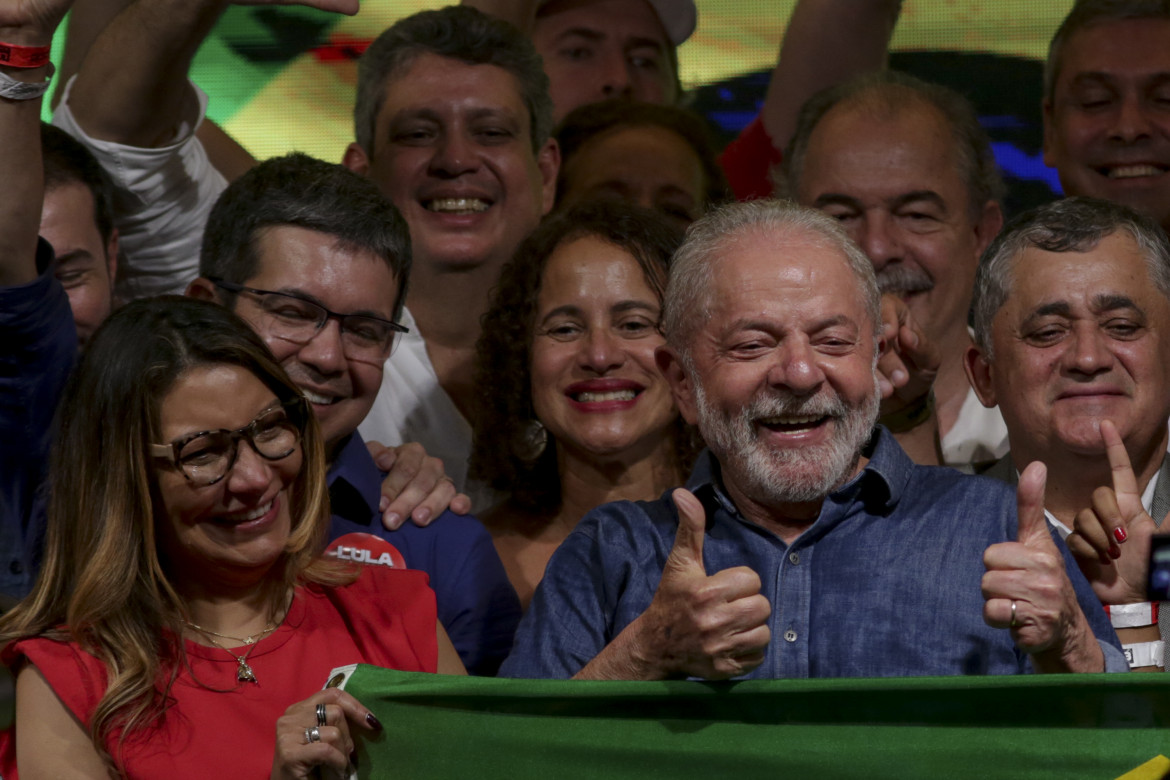Analysis
‘Brazil is back,’ Latin America breathes a sigh of relief
Lula's comeback will strengthen this pragmatic progressive group, which now brings together the five major economies of the subcontinent: Brazil, Mexico, Argentina, Colombia and Chile.

“Brazil is back” on the international stage, said Luiz Inácio Lula da Silva after his dramatic and historic victory over Bolsonaro. All of Latin America, and Cuba in particular, breathed a sigh of relief. There is no doubt that the Brazilian Workers’ Party leader’s success will have enormous impact for the Latin American subcontinent – and that it changes its geopolitical balance.
In the field of foreign policy, Lula will have a relatively freer hand than with the dangerous domestic situation inherited from four years of the Bolsonaro presidency. Over the past 40 years, since the end of the military dictatorship, Brazil had distinguished itself by an independent, pragmatic and professional foreign policy that had given the country marked prestige. Bolsonaro broke this tradition by allying himself with Trump’s U.S. and becoming something of an “international pariah,” as a part of Brazilian diplomacy complained.
Since the beginning of his presidential campaign in May, Lula has shown himself determined to regain some sort of leadership of the Latin American progressive camp. After announcing his alliance with moderate Geraldo Alckmin, and thus choosing to occupy a centrist position, albeit with a dynamic orientation, he launched the idea of a single currency for the Latin American subcontinent.
In this way, he showed that he aligned himself with the theses advocated by Mexico’s president, Andrés Manuel López Obrador (AMLO), on the need to reorient the progressive camp towards a pragmatic regional integration policy, having the EU as a model and able to dialogue with the United States on a basis of independence and regional sovereignty.
Since his election in 2018, because of Mexico’s economic and geopolitical clout, AMLO was the one who had to lead such a group, setting aside the anti-imperialism with strong ideological connotations of the days of Venezuelan President Chávez. AMLO was thus distancing himself from the notion that the U.S. imperial crisis could bring the possibility of a rapid downfall of neoliberal hegemony.
From Sunday on, and after the previous victories of progressive leaders Gabriel Boric in Chile and Gustavo Petro in Colombia, Lula’s “comeback” will strengthen this pragmatic progressive group, which now brings together the five major economies of the subcontinent: Brazil, Mexico, Argentina, Colombia and Chile. Indeed, it was the presidents of these countries who were the first to congratulate the Workers’ Party leader on his third presidency. “Lula won, blessed are the people of Brazil. There will be equality and humanism,” AMLO commented.
The importance of Brazil is an obvious reality: it is the giant of the subcontinent, with 214 million inhabitants, one of the world’s largest economies and, according to the IMF, with a projected GDP growth of 2.8 percent. Since the bloc with Argentina, Uruguay and Paraguay that created Mercosur (13 countries) is present as an already-consolidated base, the focus of Lula’s Latin American policy will be on strengthening the other regional integration body, CELAC (32 Latin American and Caribbean countries), and prioritizing the strategic association with the European Union.
Celso Amorim, one of Lula’s historic advisers, assured a few days ago that environmental issues will be “a central element of Lula’s foreign policy, because the survival of the planet depends on the climate issue.” In his speech on Sunday as well, the president-elect reiterated that, with regard to the Amazon, the main thrust of his policy will be “zero deforestation.”
Not only that: in collaboration with his campaign ally and former Environment Minister Marina Silva, he will push for greater international cooperation to protect the “lung of the Earth” and to promote measures against climate change.
“We will build a sustainable Brazil,” Lula stressed. In this regard, he will be able to count above all on a clear affinity with the policies of Colombian Gustavo Petro, who is also at the head of an Amazon country; but rather less so with Chile’s Boric and AMLO. The Colombian president has on several occasions proposed economic development based primarily on clean energy and is intent on making strong environmental policy a cornerstone of his government.
Finally, for Cuba, being able to count on a Brazilian president who is a friend as well as an ally is a development of strategic importance: “Lula means a triumph towards Latin American unity, peace and integration,” said President Díaz-Canel.
In the midst of a serious economic crisis with obvious social implications, and while U.S. President Biden is keeping in place almost all of the economic-financial and commercial chokehold on the island, the Cuban government needs the support of a strong Latin American political grouping that is able to deal with Washington on a non-conflictual basis.
Originally published at https://ilmanifesto.it/il-brasile-e-tornato-lamerica-latina-respira on 2022-11-01
